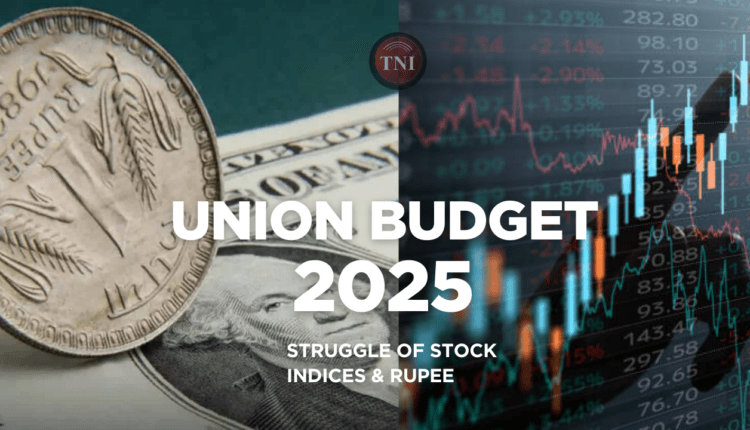Union Budget Fails To Lift Market Sentiment, Stock Indices & Rupees Struggle
Market participants had been anticipating major reforms, incentives, or stimulus measures to drive growth, but the budget seemed to lack the much-needed push for key sectors.
The Union Budget, often seen as a key economic event, failed to uplift investor sentiment this time, leaving both the stock market and the Indian rupee under pressure. Market participants had been anticipating major reforms, incentives, or stimulus measures to drive growth, but the budget seemed to lack the much-needed push for key sectors.
Despite efforts to balance fiscal prudence with economic expansion, the lack of significant policy surprises meant that investors were left disappointed. As a result, the stock market reacted negatively, with indices witnessing volatility and a downward trend. Sectors such as banking, infrastructure, and manufacturing, which were expecting major announcements, saw mixed to weak reactions from investors. The absence of aggressive measures to boost private investment and consumer demand further weighed on market sentiment.
Support Independent Journalism? Keep us live.
Foreign institutional investors (FIIs), who play a crucial role in market dynamics, appeared unimpressed. The outflow of funds contributed to the market’s sluggish response, as global uncertainties and domestic policy continuity kept investors on edge. With global markets also experiencing turbulence, the absence of strong growth-oriented measures in the budget did little to shield Indian equities from external pressures.
The Indian rupee also struggled post-budget, reflecting concerns over fiscal deficit targets and global economic conditions. While the government’s borrowing plans remained within expected limits, the lack of immediate growth triggers kept the currency under pressure. Any hopes of a sharp recovery were dampened by a cautious stance from both domestic and international investors.
Overall, the budget, while aiming for stability, failed to inject optimism into financial markets. The reaction underscores the fact that investor expectations were not met, and unless broader economic factors improve, both the stock market and the rupee may continue to face headwinds.


Comments are closed.